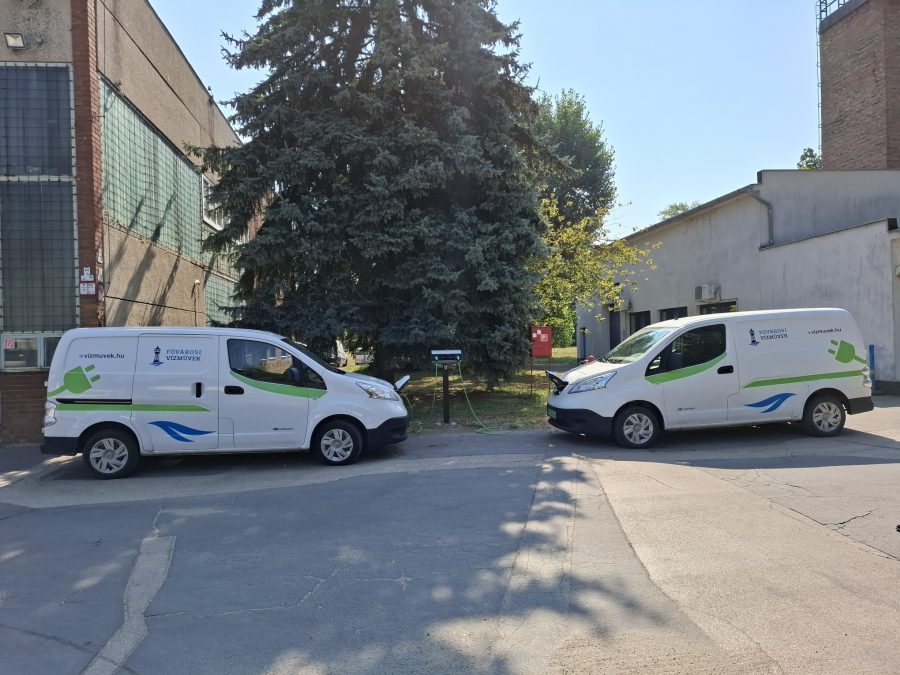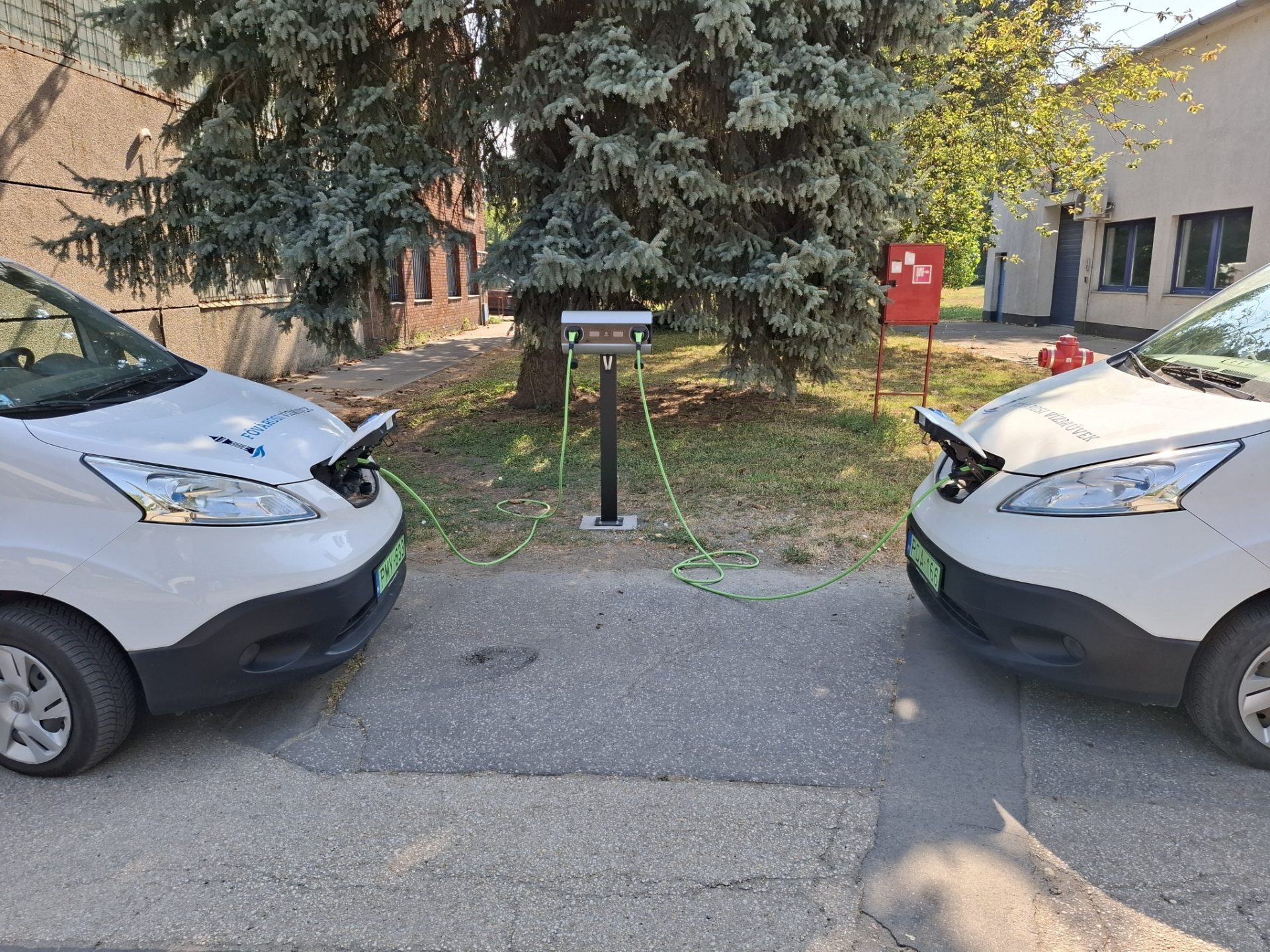
In partnership with AlteGo (an e-mobility provider), we worked on optimizing the charging of the Budapest Waterworks’ electric fleet. Through participation in the USER-CHI project, our goal was to develop a greener, more cost-effective solution, as usual, utilizing existing resources and increasing charging efficiency.
Alongside Barcelona, Berlin, Rome, and Turku, Budapest is also participating in the project to develop e-mobility. USER-CHI is a European Union initiative that enables the development of the Budapest Waterworks’ EV charging infrastructure, aiming to modernize and establish a cost-effective system. This is a research project that supports innovative solutions to bring users closer to using electric vehicles and make electric charging more accessible.
With the increasing appearance of green-plated cars, the growing demand for electric chargers poses a significant challenge, combined with limited resources. We are testing new solutions to address these challenges, aiming to make the most of the resources available, make the charging process greener, and reduce costs.

During the project, an intelligent charging network was integrated at the Waterworks’ Váci Road site, installed with a software system for easy regulation. As part of the demo, we set up 2 charging stations to test the Smart Charging (SMAC) system. We collaborated with the AlteGo team to provide a solution that regulates charging performance considering user needs, local renewable production, and market price.
The development of the Budapest Waterworks’ electric fleet is part of the 2018-2030 Climate strategy of Budapest, which focuses on climate mitigation, adaptation, and awareness raising. If the testing of the two charging points provided by MET3R and AlteGo turns out to be successful, it can be expanded to additional locations. This development brings us a step closer to promoting e-mobility and greening electric charging points.